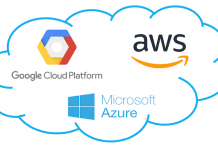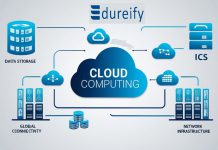Cloud computing is a technology that enables users to access and use computing resources (such as servers, storage, databases, networking, software, analytics, and intelligence) over the internet. Instead of owning and maintaining physical hardware or servers, individuals and organizations can rent or lease these resources from a cloud service provider.
In the realm of coding, cloud computing plays a pivotal role by providing a flexible and scalable environment for developers. Here are some key aspects highlighting the significance of cloud computing in coding:
Resource Scalability
Cloud platforms allow developers to scale their computing resources up or down based on the demands of their applications. This elasticity ensures that applications can handle varying workloads efficiently.
Cost-Efficiency
Traditional infrastructure requires significant upfront investment and ongoing maintenance costs. Cloud computing, on the other hand, follows a pay-as-you-go model. Developers only pay for the resources they use, making it a cost-effective solution.
Global Accessibility
Cloud services are accessible over the internet from anywhere in the world. This global accessibility facilitates collaboration among geographically dispersed development teams and allows users to access applications seamlessly.
Collaboration and Version Control
Cloud platforms offer tools for collaboration and version control, enabling multiple developers to work on the same project simultaneously. This fosters teamwork, reduces conflicts in code integration, and enhances overall development efficiency.
DevOps Integration
Cloud computing supports DevOps practices by providing a set of tools and services for continuous integration, continuous delivery, and automated testing. This integration streamlines the development pipeline and accelerates the release of software updates.
Database Management
Cloud databases offer scalable and managed solutions for storing and retrieving data. Developers can leverage these services without the need to worry about the underlying infrastructure, allowing them to focus more on the application logic.
Serverless Computing
Serverless computing, offered by many cloud providers, allows developers to run code without provisioning or managing servers. This model simplifies development, as developers can focus solely on writing code, while the cloud provider handles the underlying infrastructure.
Security and Compliance
Cloud providers invest heavily in security measures, often more than individual organizations can afford. This includes encryption, identity and access management, and compliance certifications. Utilizing cloud services can enhance the overall security posture of applications.
Continuous Integration and Continuous Deployment (CI/CD)
Cloud computing facilitates the implementation of CI/CD pipelines, automating the testing and deployment of code changes. This results in faster and more reliable software releases.
Machine Learning and AI Services
Cloud providers offer ready-to-use machine learning and artificial intelligence services, allowing developers to incorporate advanced capabilities into their applications without having to build and train models from scratch.
In conclusion, cloud computing has become an integral part of the coding landscape, transforming the way software is developed, deployed, and managed. Its benefits in terms of scalability, cost-efficiency, global accessibility, collaboration, and security make it an essential enabler for modern software development. As technology continues to evolve, the role of cloud computing in coding is likely to expand, driving innovation and efficiency in the development process.
Master Your Coding Skills with BootSelf AI
If you're looking to enhance your coding abilities and upskill in artificial intelligence, look no further than the BootSelf AI app. This innovative platform provides AI-based coding lessons that are tailored to your individual learning pace.
Available on both iOS and Android, you can download the BootSelf AI app and start mastering coding skills today:









